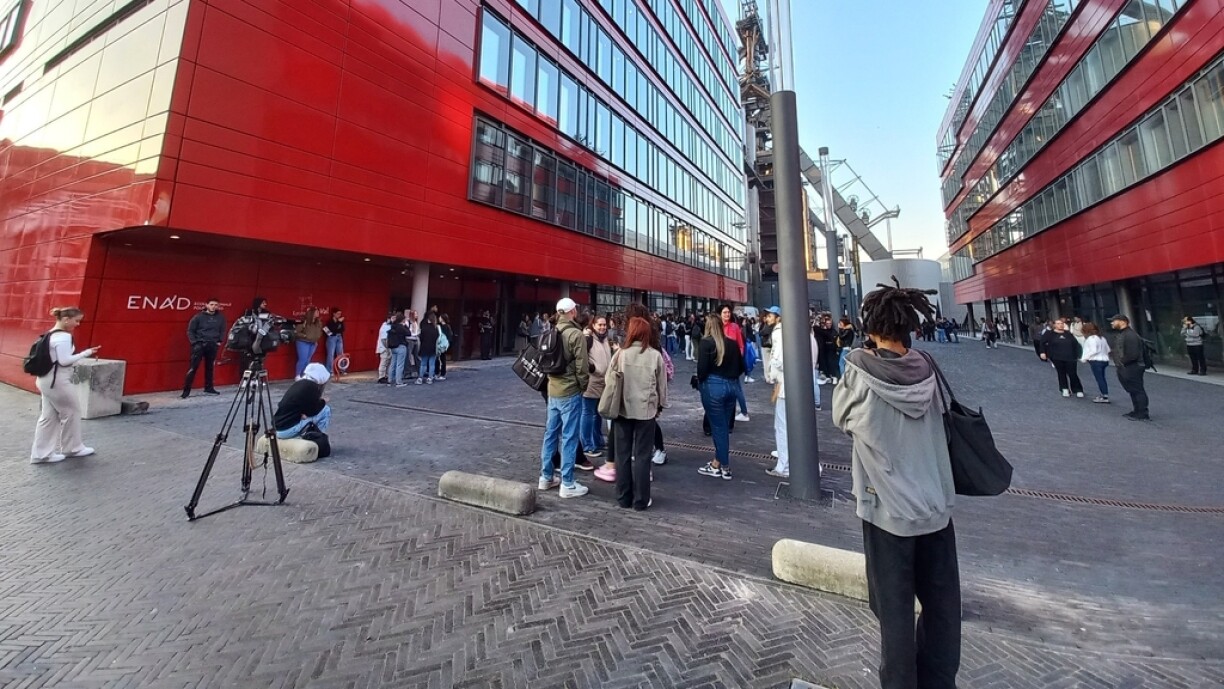
For the Luxembourg’s National Students’ Council’s (CNEL) vice-president, Semir Honsic of the Atert Lycée in Redange-sur-Attert, and president Luca Roettgers of the Lycée Edward Steichen in Clervaux, this new year is particularly significant: if all goes to plan, it will be their last as secondary school students.
Honsic said he was genuinely glad to be back, explaining that he preferred being busy and found the rhythm of school life motivating, not least because it allows him to reconnect socially.
Roettgers admitted to mixed emotions, calling it the “last return to school” and noting that after years of welcoming new Year 7 pupils into the building, this time he would be starting his own final cycle, likely for the last time.
When asked how students can make the transition into the school year easier, both offered practical advice. They agreed that, however annoying it may seem when parents insist, reviewing material in the days before classes begin and looking over timetables can help smooth the start.
Honsic stressed the importance of building social connections from the outset, encouraging new students to be bold enough to introduce themselves rather than retreat into shyness. Roettgers added that young people should also remember that their voice matters, and engaging actively in school life helps ensure it is heard.
Among the topics that preoccupy students, the government’s reform of iPad classes currently causes uncertainty, with some unsure whether they will actually receive the promised devices, they stated.
The recent decision to block the Eduroam Wi-Fi network for pupils under 15 has also sparked confusion. They explained that Eduroam is a global Wi-Fi network used by schools and universities, which has recently also been rolled out at railway stations in Luxembourg as well. Until last school year, younger students could log on, but now they are cut off, they explained.
They said that this raises a host of practical questions: for example, if pupils in iPad classes are under 15, how are they meant to get online to access school resources? Will each school be expected to provide its own network under the “One-to-One” system, or will there be a different solution?
The restriction also creates everyday complications. As Roettgers pointed out, a teenager finishing class and heading to the station may find their train cancelled and need to check connections on mobiliteit.lu or the CFL app. If they do not have mobile data, they cannot connect to Eduroam either, leaving them effectively stranded without internet access, he said. Roettgers explained that many pupils are left uncertain how these rules will work in practice.
Beyond the classroom, politics weighs heavily on students’ minds. Roettgers noted that many are worried by the rise of far-right parties and sometimes wonder whether they have the power to influence democratic life at all. The CNEL wants to counter this lingering doubt by reminding students that they do have a voice, and the means to use it.
On its agenda for the new year, they explained that they will continue discussions with the Education Ministry on iPad classes and Eduroam, while also launching a campaign against the growing consumption of snus, a smokeless tobacco product increasingly popular even among under-16s. According to Honsic, a survey of over 1,000 pupils has already been carried out, and the findings will soon be shared publicly.
Climate and sustainability also remain key concerns, they said. Honsic argued that schools must weave sustainability more deeply into everyday teaching so that students internalise it as a lifelong habit.
Roettgers pointed out a paradox: the policy of free textbooks, while well-intentioned, has reduced the practice of reusing or exchanging second-hand books, leading to more waste, which he considers at odds with sustainability.
The CNEL has also welcomed two major education reforms announced by the Education Ministry: extending compulsory schooling to age 18, which Honsic believes will help curb school drop-out rates, and introducing literacy in French from 2026.
Roettgers dismissed fears that French literacy would create parallel tracks, stressing that it would simply ease the first steps for francophone pupils before all students converge again in shared classes.
One area where the CNEL is less satisfied is the outcome of the third round of social negotiations, which included plans to progressively increase working life by eight months over the next five years.
Honsic criticised this as falling short of intergenerational fairness, echoing unions that have described the talks as a failure. He argued that it is still not too late to find a better solution, with Roettgers promising that the CNEL would add its own response to those of other organisations represented on the Youth Council.